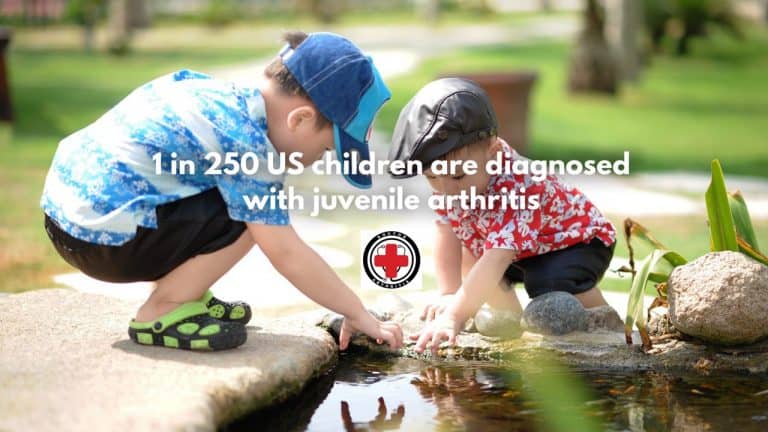With over 1 million orders

DR. ARTHRITIS SHARES: TECHNOLOGY HELPS YOUNG ARTHRITIS SUFFERERS COMMUNICATE BETTER
Fact: young people get arthritis too.
According to the CDC:
Arthritis in children is called childhood arthritis or juvenile arthritis. The most common type of childhood arthritis is juvenile idiopathic arthritis (JIA), also known as juvenile rheumatoid arthritis.
Childhood arthritis can cause permanent physical damage to joints. This damage can make it hard for the child to do everyday things like walking or dressing and can result in disability.
In fact, according to statistics, 1 in 250 US children are diagnosed with the condition. And according to further research, young people who live with JIA often struggle to express their needs to family members and caregivers.

As you know, opening up and communicating is already a challenge among adults who suffer from arthritis. Imagine a young child trying to manage their condition and their treatment, when they are typically more ill-equipped to do so.
To that end, a team of researchers made of international medical experts and led by the Minnesota School of Public Health is exploring how technology can empower kids who suffer from JIA communicate better.
The team has developed an app called Genia that’s intended to create a patient support system that emphasizes the importance of communication and building relationships, especially when it comes to decision-making.
In the study, researchers found that JIA sufferers tend to feel isolated and greatly appreciate opportunities where they can engage with other kids without the stigma of their illness hanging over their head. The idea of being seen as a “normal kid” is important to them. They’re very open to the possibility of working closely with their parents so they can articulate their needs better.
To that end, Genia’s ability to track and measure data like pain, fatigue, exercise, and diet is critical. It also incorporates more subjective insight such as mood that can give more clarity for health care professionals who want to find the right treatment plan for young children.
“Technologies like mHealth are challenging our conceptions of health communication and physician-patient interaction,” said Stuart Grande, lead researcher and lecturer in the School of Public Health. “Young people rely on their parents when communicating with physicians. Therefore an app like Genia, which offers parents and young people a way to connect prior to meeting with a physician, appears to be very important.”
To learn more about the study, check out the published study here.
